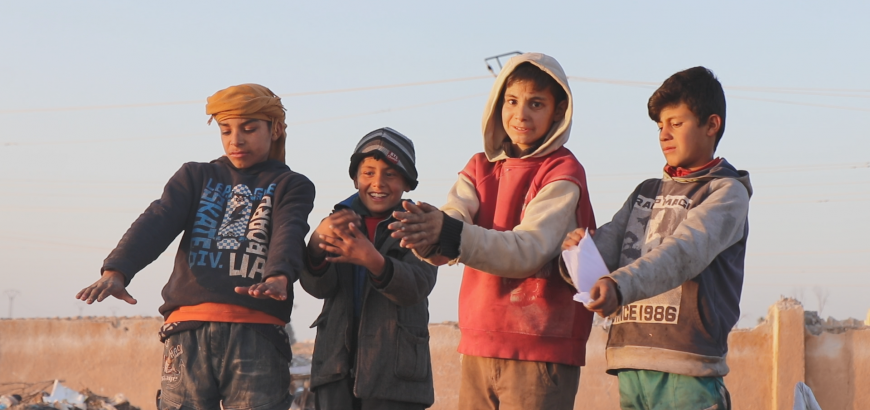Amid the trash scattered on the outskirts of the city of Hassakeh, Abdul Hakeem and his six siblings rummage through the heaps in search of any materials they might be able to sell and secure money for their family, which is living through harsh conditions.
Abdul Hakeem Attiyeh is eight years-old and is from the city’s al-Ghazal district. He is one of five brothers who spend most of their days collecting scraps, since illness prevents their father from working.
As well as looking through trash, Abdul Hakeem and four of his siblings walk to school, but he believes that their difficult living conditions mean he will need to leave school.
Abdul Hakeem told Alsouria Net: “Out of seven siblings, five of us go to school as well as collecting plastic material scraps. Sometimes we go before the schools starts at 07:00 a.m. to collect what we can.” He expressed his desire for him and his siblings to finish school: “We want to go to school and we don’t want to leave like our big siblings, but we have to work and our situation is very bad. We’d like someone to help us finish school.”
There are no exact statistics about the amount of child labor in Hassakeh province, but there is general consensus that it has become widespread. Although the Self-Administration and the regime having laws forbidding it, the reality is different.
During a short tour of the markets in the cities and towns of Hassakeh province, it is clear that this phenomenon has grown. Children are working in difficult and harsh jobs, inappropriate for their age and physical structure—especially industry, where they are forced to lift heavy materials mostly above their abilities. There were also many children in the vegetable markets carrying goods and doing other jobs and work that require strong bodies and strenuous efforts.
In one manufacturing shop in Qamishli, Yaman Mohamed, 15, has been working on repairing cars since he was about six. Everyday he carries heavy tools and is forced to inhale paint odors and oil derivatives, leaving school behind him to provide for his orphaned siblings.
Mohamed told Alsouria Net that he is the oldest of his siblings, and that his father died five years ago. At the time, his mother was pregnant with a new child, making five children in a rented house. He said that, “the most difficult test was choosing between what we love. I still have my school bag and some books. I wasn’t lazy in my studies. But with the death of my father, I lost a lot and now I dream that one day I’ll go back to these books. My mother promised me this.”
Social researcher Roula Hassan told Alsouria Net that there was, “a general shortcoming with regards to child labor in Hassakeh province. It is clear that there is no action by any agencies that consider themselves the authority,” whether that be the Self-Administration or the Assad regime, “against this phenomenon or serious work to fight the problem. They are content with observation and some statistics of little value. There is a lack of attention by these bodies for children’s rights and a lack of effort to care for them, while the psychological, social and health impact on children from this labor continues to grow.”
The researcher noted that the regime’s official reports have indicated in recent years that: “the rate of labor among Syrian children over the last few years has reached more than 30 percent, while the local estimates say it is more than that.”
The Labor Committee in the Self-Administration has observed 546 cases of child labor throughout Hassakeh province and in the latest report it issued in August 2017, it said that it included displaced children and those living in the province whose ages ranged between six and 12. They did not later issue any new statistics.
This article was translated and edited by The Syrian Observer. Responsibility for the information and views set out in this article lies entirely with the author.


